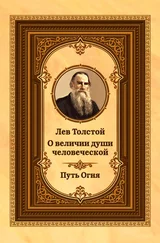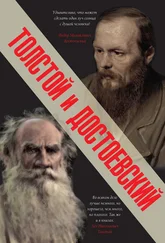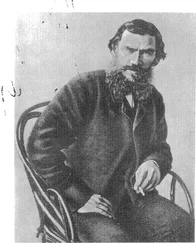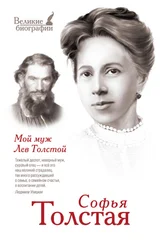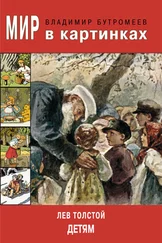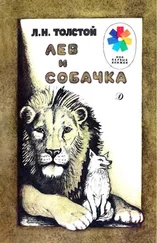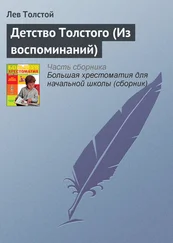Лев Толстой - Katia
Здесь есть возможность читать онлайн «Лев Толстой - Katia» весь текст электронной книги совершенно бесплатно (целиком полную версию без сокращений). В некоторых случаях можно слушать аудио, скачать через торрент в формате fb2 и присутствует краткое содержание. Издательство: Иностранный паблик, Жанр: Русская классическая проза, на английском языке. Описание произведения, (предисловие) а так же отзывы посетителей доступны на портале библиотеки ЛибКат.
- Название:Katia
- Автор:
- Издательство:Иностранный паблик
- Жанр:
- Год:неизвестен
- ISBN:нет данных
- Рейтинг книги:3 / 5. Голосов: 1
-
Избранное:Добавить в избранное
- Отзывы:
-
Ваша оценка:
- 60
- 1
- 2
- 3
- 4
- 5
Katia: краткое содержание, описание и аннотация
Предлагаем к чтению аннотацию, описание, краткое содержание или предисловие (зависит от того, что написал сам автор книги «Katia»). Если вы не нашли необходимую информацию о книге — напишите в комментариях, мы постараемся отыскать её.
Katia — читать онлайн бесплатно полную книгу (весь текст) целиком
Ниже представлен текст книги, разбитый по страницам. Система сохранения места последней прочитанной страницы, позволяет с удобством читать онлайн бесплатно книгу «Katia», без необходимости каждый раз заново искать на чём Вы остановились. Поставьте закладку, и сможете в любой момент перейти на страницу, на которой закончили чтение.
Интервал:
Закладка:
Before dinner we went to church, to hear the service for the dead, in commemoration of my father.
“Oh, if he were still in this world!” thought I, as I was returning home, leaning silently on the arm of the man who had been his dearest friend. While the prayers were being read, kneeling with my brow pressed upon the cold flag-stones of the chapel floor, my father had been so vividly brought before my mind, that I could not help believing that he comprehended me and blessed my choice, and I imagined that, at the moment, his soul was hovering above us, and that his benediction rested upon me. These remembrances, these hopes, my happiness and my regrets, blended within me into a feeling at once solemn and sweet, which seemed, as it were, to be set in a frame of clear quiet air, stillness, bare fields, pale heavens whose brilliant but enfeebled rays vainly strove to bring the color to my cheek. I persuaded myself that my companion was understanding and sharing my feelings. He walked with slow steps, in silence, and his face, which I glanced into from time to time, bore the impress of that intense state of the soul, which is neither sadness nor joy, and which perfectly harmonized with surrounding nature and with my heart.
All at once, he turned towards me, and I saw that he had something to say to me. What if he were not going to speak of what was in my thoughts? But without even naming him he spoke of my father, and added:
“One day he happened to say to me, laughingly, ‘You will marry my little Katia!’”
“How glad he would have been, to-day,” I responded, pressing closer to the arm on which I leaned.
“Yes, you were then but a child,” he went on, looking deep into my eyes; “I kissed those eyes and loved them simply because they were so like his, and I was far from thinking that one day they would be so dear to me in themselves.”
We were still walking slowly along the field-path, scarcely traceable among the trodden and scattered stubble, and heard no sound save our own footsteps and voices. The sun poured down floods of light that gave no warmth. When we spoke, our voices seemed to resound and hang suspended above our heads in the motionless atmosphere. We might have thought we two were alone upon the earth, alone beneath that blue vault vibrating with cold scintillations from the sun.
When we arrived at the house, we found his mother already there, with the few guests whom we had felt obliged to invite, and I was not again alone with him until we had left the church and were in the carriage on our way to Nikolski.
The church had been almost empty. At one glance I had seen his mother, standing near the choir; Macha, with her wet cheeks and lilac cap-ribbons; and two or three droroviés , who were gazing at me with curious eyes. I heard the prayers, I repeated them, but they had no meaning for me. I could not pray, myself, I only kept looking stupidly at the images, the wax tapers, the cross embroidered on the chasuble the priest had on, the iconostase, the church windows, but did not seem able to understand anything at all; I only felt that something very extraordinary was being done to me. When the priest turned towards us with the cross, when he gave us his congratulations, and said that he had baptized me and that now God had permitted him also to marry me; when Macha and Sergius’ mother embraced us, when I heard Gregory’s voice calling the carriage, I was astonished and frightened at the thought that all was finished, though no marvellous change, corresponding with the sacrament which had just been performed over me, had taken place in my soul. We kissed each other, and this kiss appeared to me so odd, so out of keeping with ourselves, that I could not help thinking: “It is only that ?” We went out upon the parvise, the noise of the wheels echoed loudly within the arch of the church; I felt the fresh air upon my face, and was conscious that, Sergius with his hat under his arm, had assisted me into the carriage. Through the window I saw that the moon was shining in her place in the frosty sky. He took his seat beside me, and shut the door. Something, at this moment, seemed to strike through my heart, as if the assurance with which he did this had given me a wound. The wheels glanced against a stone, then began to revolve upon the smooth road, and we were gone. Drawn back into a corner of the carriage, I watched the fields flooded with light, and the flying road. Nevertheless, without looking at him, I was feeling that there he was, beside me. “Here, then, is all that this first moment from which I have expected so much, brings me?” I thought, and all at once I had a sense of humiliation and offence at finding myself seated thus alone with him and so close to him. I turned towards him, intending to say something, no matter what. But no word would come from my lips; one would have said that no trace of my former tenderness lingered within my heart, but that it was entirely replaced by this impression of alarm and offence.
“Up to this moment, I still dared not believe that this might be!” he softly responded to my glance. “And I … I am afraid … I know not why!”
“Afraid of me, Katia?” he said, taking my hand, and bending his head over it.
My hand rested within his, lifeless; my heart stopped beating.
“Yes,” I murmured.
But, at the same moment, my heart suddenly began to beat again, my hand trembled and clasped his, warmth returned to me; my eyes, in the dim light, sought his eyes, and I felt, all at once, that I was no longer afraid of him; that this terror had been but a new love, yet more tender and strong than the old. I knew that I was wholly his, and that I was happy to be wholly in his power.
CHAPTER VI
THE days, the weeks, two entire months of lonely country life slipped away, imperceptibly, it appeared to us; but the sensations, the emotions, and the happiness of these two months would have sufficed to fill a whole life. My dreams, and his, concerning the mode of organizing our joint existence were not realized exactly as we had anticipated. But, nevertheless, the reality was not below our dreams. This was not the life of strict industry, full of duties, abnegation, and sacrifices, which I had pictured to myself when I became his betrothed; on the contrary, it was the absorbing and egotistical sentiment of love, joys without reason and without end, oblivion of everything in the world. He would, it is true, sometimes retire to his study and occupy himself with something demanding attention; sometimes he went to the city on business, or overlooked his agricultural matters; but I could see how hard it was for him to tear himself away from me. Indeed, he himself said that whenever I was not present, things appeared to him so devoid of interest that the wonder was that he could attend to them at all. It was precisely the same on my side. I read, I busied myself with my music, with Mamma, with the schools; but I only did so because all these employments were in some way connected with him, and met with his approbation, and the instant the thought of him ceased to be in some manner, direct or indirect, associated with anything whatever that I was doing, I would stop doing it. To me, he was the only person in the universe, the handsomest, noblest human being in the wide world; of course, therefore, I could live for nothing but him, could strive for nothing but to remain in his eyes what he considered me. For he honestly considered me the first and highest of women, gifted with every excellence and charm; and my one aim was to be in reality for him this highest and most complete of all existing creatures.
Ours was one of those old country homes, where generation after generation of ancestors had lived, loved each other, and peacefully passed away. The very walls seemed to breathe out happy household memories, and no sooner had I set my foot upon the threshold, than these all appeared to become memories of my own. The arrangement and order of the dwelling were old-fashioned, carefully kept so by Tatiania Semenovna. No one could have said that anything was handsome or elegant, but everything, from the attendance to the furniture and the food, was proper, solid, regular, and seemed to inspire respect. In the drawing-room, tables, chairs, and divans were symmetrically ranged, the walls were hidden by family portraits, and the floor was covered with ancient rugs and immense landscapes in linen. In the small parlor there was an old grand piano, two chiffoniers of different shapes, a divan, and one or two tables decorated with wrought copper. My private room, adorned by Tatiana Semenovna, was honored with all the finest pieces of furniture, irrespective of varying styles and dates, and, among the rest, with an old mirror with doors, which at first I hardly dared to raise my eyes to, but which afterwards became like a dear old friend to me. Tatiana’s voice was never heard, but the household went on with the regularity of a well-wound clock, although there were many more servants than were necessary. But all these servants, wearing their soft heelless slippers (for Tatiana Semenovna insisted that creaking soles and pounding heels were, of all things in the world, the most disagreeable), all these servants appeared proud of their condition, trembling before the old lady, showing to my husband and me a protecting good-will, and seeming to take special satisfaction in the discharge of their respective duties. Every Saturday, regularly, the floors were scoured, and the carpets shaken; on the first day of every month, a Te Deum was chanted, and holy water sprinkled; while upon every recurring fête-day of Tatiana Semenovna and her son, and now also upon mine (which took place this autumn, for the first time), a feast was given to all the neighborhood. And all this was performed precisely as in the oldest times that Tatiana Semenovna could remember.
Читать дальшеИнтервал:
Закладка:
Похожие книги на «Katia»
Представляем Вашему вниманию похожие книги на «Katia» списком для выбора. Мы отобрали схожую по названию и смыслу литературу в надежде предоставить читателям больше вариантов отыскать новые, интересные, ещё непрочитанные произведения.
Обсуждение, отзывы о книге «Katia» и просто собственные мнения читателей. Оставьте ваши комментарии, напишите, что Вы думаете о произведении, его смысле или главных героях. Укажите что конкретно понравилось, а что нет, и почему Вы так считаете.

